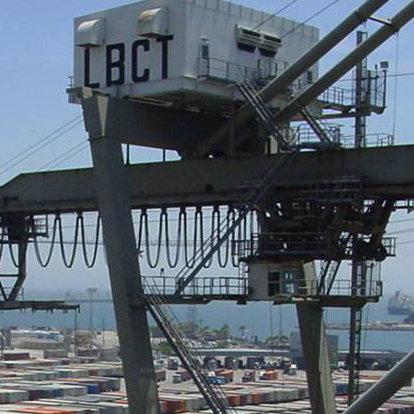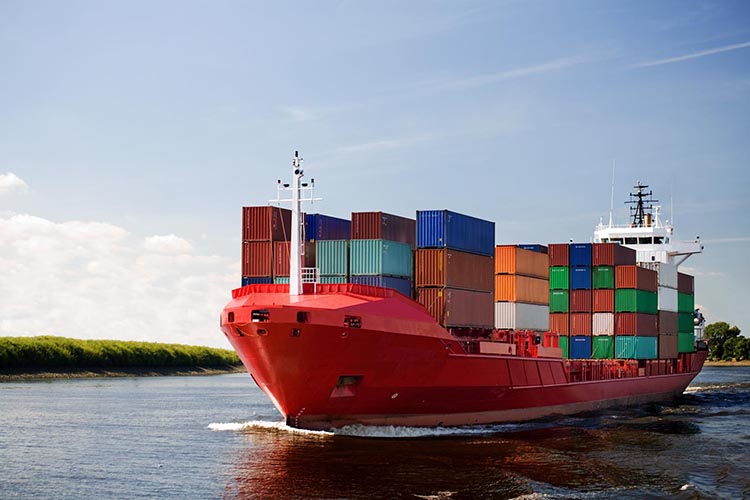
FTZ’ine May 2021
May 3, 2021
FTZ’ine July 2021
July 1, 2021Infrastructure Takes Center Stage
After a bruising battle that scuttled the first version of a $2T infrastructure proposal, the Biden Administration pivoted directly to a new federal budget, keeping its focus firmly on the health of the U.S. economy. With such attention to organizing federal spending to restart growth, little room is available for issues related to international commerce. As such, little has changed with respect to trade policy since we last talked.
China tariffs remain in place and while talks with the Biden Administration and China have just begun, the list of problematic commodities from China has broadened.
There is no timetable, or seemingly any discussion, on a Miscellaneous Tariff Bill or renewal of GSP.
Relations with USMCA partner Canada actually got worse due to a dispute over dairy exports.
CBP has internally agreed that merchandise subject to a WRO could be stored in a Foreign-Trade Zone until a determination is made on the import eligibility of the merchandise. Storage is only permissible with additional security restrictions and approval from the local port.
With this month’s photo of one of Abraham Lincoln’s stovepipe hats (3 out of 7 are known to still exist) we reflect on the first sitting President to give the last full measure of devotion in service to our country. The FTZine staff hopes all our readers enjoyed a long, peaceful, and enjoyable Memorial Day weekend.

Top Story: US Expands Forced Labor Restrictions On China Goods
Tech Tip
Have you been getting notices that Internet Explorer will no longer be supported by Microsoft after June 15, 2022? Maybe you’ve already switched to using Microsoft Edge, or maybe you figure IE’s demise is over a year away so it doesn’t really impact you. If you are a user of CBP’s ACE portal, however, you do want to make sure you are upgrading your browsers.
In April 2020, amid the crush of pandemic closings and virtual office openings, CBP issued CSMS #42259311 – “Deployment of ACE Security Changes will Impact Internet Browser Version Capability”. In this CSMS message, CBP indicated that “While ACE does not explicitly support browsers other than Internet Explorer, CBP is aware that they are used.” In this message were listed the versions of popular browsers that would be required to support ACE reports, but many users still saw portal issues when using browsers other than Internet explorer, particularly in the Accounts view.
In December 2020, CBP issued CSMS #45056897 – “ACE Reports Now Compatible with Additional Web Browsers”. In this brief message, CBP stated, “ACE Reports has been upgraded so that it can now be accessed with additional web browsers, and is therefore no longer restricted to Internet Explorer version 11.”
Both this and the earlier message focused on ACE reports, so ACE portal users still need to check query results, particularly when switching between Account Type View and between Accounts. If you are experiencing erratic results in portal selections, check which browser you are using. Microsoft Edge (and IE until it is discontinued and automatically redirects to Microsoft Edge after June 15, 2022) are still the best browsers to use when interacting with CBP through ACE.
If you have questions regarding ACE, ACE reports and ACE portal functionality, send them to us at Info@iscm.co to learn how ISCM can help.


Supply Chains Give Economy Fits And Starts
Europe Postpones Additional Tariffs On U.S. Exports


Withhold Release Order Procedures Continue to Roil Supply Chains
Canada Trade Relations Sour With The Milk


West Coast Port Congestion easing, but slowly
FTZ Board Activity
- Watco Transloading, LLC submitted an application for subzone status for its facilities within FTZ 161 in Parsons, Kansas. MORE
- Cycle Force Group, LLC submitted a notification of proposed production activity for electric and non-electric bicycles within FTZ 107 in Ames, Iowa. MORE
- Celgene Corporation received approval for the expansion of subzone 40I in Eastlake, Ohio. MORE
- Wyeth Pharmaceuticals, LLC submitted a notification of proposed production activity for mRNA bulk drug substance within FTZ 27 in Andover, Massachusetts. MORE
- Volkswagen Group of America Chattanooga Operations, LLC submitted a notification of proposed production activity for additional components of passenger motor vehicles within FTZ 134 in Chattanooga, Tennessee. MORE
- Rivian Automotive, LLC received authorization of limited production activity for electric vehicles and components within FTZ 114 in Normal, Illinois. MORE
- STIHL, Incorporated submitted a notification of proposed production activity for additional components of handheld outdoor power equipment within FTZ 134 in Virginia Beach, Virginia. MORE
- The Economic Development Alliance of St. Clair County submitted an application for the reorganization of FTZ 210 under the Alternative Site Framework in St. Clair County, Michigan. MORE
- Hidalgo County Regional Foreign Trade Zone has received approval for designation as the new Grantee of Foreign-Trade Zone 156 in Hidalgo County, Texas. MORE
- Sheffield Pharmaceuticals, LLC submitted a notification of proposed production activity for Over-the-Counter (OTC) healthcare products within FTZ 208 in New London and Norwich, Connecticut. MORE
- BMW Manufacturing Company, LLC received authorization of production activity for additional components of passenger motor vehicles within FTZ 38 in Spartanburg, South Carolina. MORE
- Piramal Critical Care, Inc. received approval to operate its facility in Linden, New Jersey as Subzone 44N. MORE
- Foreign-Trade Zone 29 received approval to expand a magnet site under the Alternative Site Framework in Louisville, Kentucky. MORE
- Teijin Carbon Fibers, Inc. submitted an amendment to the notification of proposed production activity within FTZ 38 in Spartanburg County, South Carolina. MORE
- Swagelok Company submitted a notification of proposed production activity for finished bar stock within FTZ 33 in Koppel, Pennsylvania. MORE
- AbbVie Ltd. submitted a notification of proposed production activity for additional pharmaceutical products and components within FTZ 7 in Barceloneta, Puerto Rico. MORE
- Woodfield Distribution LLC received approval for the expansion of subzone 49V in Dayton, New Jersey. MORE

Infrastructure Takes Center Stage –
After a bruising battle that scuttled the first version of a $2T infrastructure proposal, the Biden Administration pivoted directly to a new federal budget, keeping its focus firmly on the health of the U.S. economy. With such attention to organizing federal spending to restart growth, little room is available for issues related to international commerce. As such, little has changed with respect to trade policy since we last talked.
China tariffs remain in place and while talks with the Biden Administration and China have just begun, the list of problematic commodities from China has broadened.
There is no timetable, or seemingly any discussion, on a Miscellaneous Tariff Bill or renewal of GSP.
Relations with USMCA partner Canada actually got worse due to a dispute over dairy exports.
CBP has internally agreed that merchandise subject to a WRO could be stored in a Foreign-Trade Zone until a determination is made on the import eligibility of the merchandise. Storage is only permissible with additional security restrictions and approval from the local port. With this month’s photo of one of Abraham Lincoln’s stovepipe hats (3 out of 7 are known to still exist) we reflect on the first sitting President to give the last full measure of devotion in service to our country. The FTZine staff hopes all our readers enjoyed a long, peaceful, and enjoyable Memorial Day weekend.

